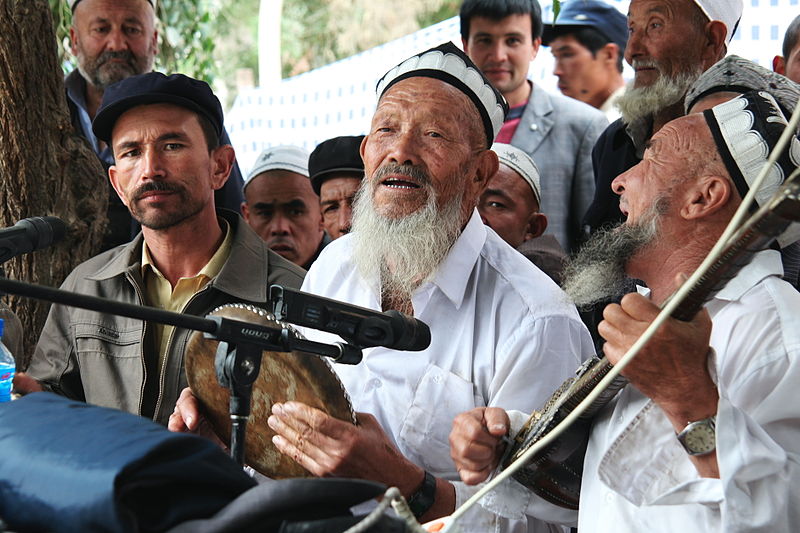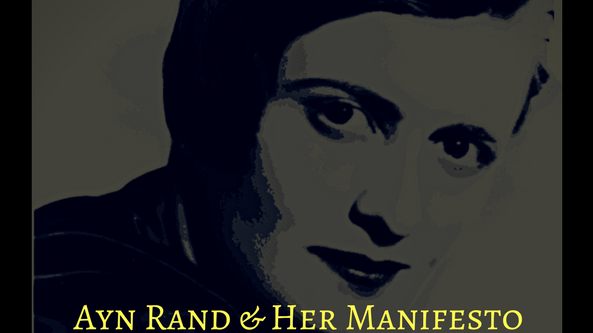China has banned the usage of a few Islamic names in the Xinjiang province. This is a Muslim majority province and such an action is supposed to impact children who would be named Imam, Hajj, Islam, Quran, Saddam, Medina etc. These names are supposedly heavily loaded with religious extremism and must not be considered by families for their children if they are to get hukou (household registration) and other state services.
Should we read to become a writer?
Identification
While there can be various sides to this discussion, I would put my foot forward and say that it might not be necessary for you to read to become a writer. A writer has to write. There is no dearth of writers today who don’t read. How do you tell the difference?
Ambedkar on Whatsapp
Vajra pushed down the lid of his laptop, gulped down a bottle of water, and hastened to his bed with his cellphone. It was 11.30 p.m. and he had to finish sending a few replies on his phone before calling it a day. There were 120 messages flooding his inbox from friends and groups. The most noisy of all the groups he was part of spoke of Dr. Bhim Rao Ambedkar incessantly.
A Trip to the Central Prison
I delighted myself with the joy of spending an entire day in front of the gates of the Central Jail in Bengaluru along with a friend. On retrospection, it sounds like a stupid idea to wait in front of the gates of a prison for whatever reason. However even the stupidest of ideas leave you with an experience worthy of writing. So here is my recollection of how the day unfolded. Continue reading “A Trip to the Central Prison”
Yard of the Bards – Orwell and the language of politics
It was only the beginning of summer and the day was 2nd April, 2017. Having already experienced a hot March we had to forego our usual meeting spot in Cubbon Park to find a better venue and a better time. Freedom Park, we thought would fit our needs apart from being the metaphorically appropriate venue for the subject we had chosen for discussion – “George Orwell and the language of politics”. As the sun went down, they walked in one after the other eventually turning into a diverse group of interesting minds.
George Orwell had been a lot of things in his life from imperial police to teacher, but he is remembered the best as a writer, novelist and an essayist. Although Orwell did not live past 1950, his works have continued to influence not only his readers and other writers, but also the political culture of all these years. His creations rendered a new adjective to the language – Orwellian indicating a totalitarian regime and a set of whole new terms which continue to be relevant even in the modern societal and political discourses.
Introductions done and the ice molten, the group began with the reading of an excerpt from Orwell’s 1940 essay – “My Country Right or Left”. The excerpt was about Orwell’s memory of the First World War. That set the context for the first round of discussion which began with a question of “Are we living in an Orwellian world? “. While some opined we probably are living in a post-Orwellian world which is worse than the Orwellian, there were also others who agreed it could be a reverse Orwellian effect. The discussion took off from there touching on the political scenario in India, in the USA; Gandhi, Hitler and the rewriting of history to suit the narrative of the rulers. The group also quoted examples of Standing Rock of North Dakota and delved a little deeper into the Aadhar scheme in India,
The group then went on to talk about doublethink, thought police, the concept of unpersoning with examples from the story of Nikolai Yezhov and the power of the ruling system as seen in the Tiananmen square massacre. The non-existence of privacy, the idea of alternate truths, winnability vs representation, corruption vs efficiency etc. were discussed too and out came some interesting questions which also drove the discussion. Some of these probably did not have a conclusive answer at the end, nevertheless we want to leave them here for our readers to ponder over.
How much of Orwell has come true today?
Is there a collective “We” who can be represented? Can this collective “Us” be represented at all? If yes, what would be the quality of that representation?
How powerful is the system? Is our view of the system a reductionist view?
Do we have constitution for the people or people for the constitution? Or is it what me make of it?
p.s: Our next event will be held on April 29, 2017 and the title is “Munshi Prem Chand and his Social Realism” . Follow our Facebook page for more updates on the event.
The Night of Harmony




Fair is lovely & Africa is cannibal!
I was taking a break at my cousin’s place at Mumbai before starting for the onward journey to home. My niece was about 10 years old then. It was evening and we were talking of studies, sports, music and every other activity she was involved in. At one point, she made a comment – “Chachu, aap chaai bahut peete ho kya? Chai peene se hi aapka rang aisa ho gaya hai.” (Uncle, do you take tea often? Your color has turned into this because of this.). Her mom who was sitting in a corner, feeling embarrassed cut her short and told me – “We have told her that she would become dark if she drank tea, just to keep her away from it. Please don’t mind.” I couldn’t say much. Here was a kid who had been taught that dark people didn’t exist in the world. People became dark only because they overdrank tea.
Yard of the Bards – Ayn Rand & Her Manifesto
On 19th February, it was the turn of The Bookworm (Church Street, Bangalore) to host us for a discussion on the philosophy of the Objectivism exponent – Ayn Rand. Ayn Rand, who has written a few of the most widely known books of all times including The Fountainhead and Atlas Shrugged has been a subject of great interest among readers of all ages and nations. We were aware by the virtue of our own readings and our discussions with fellow readers and friends that Ayn Rand’s usage of literary devices to drive her beliefs about man, society, and economy into the reader’s realms of imagination is intoxicating.
Continue reading “Yard of the Bards – Ayn Rand & Her Manifesto”
50 & I am not done yet!
“Results indicate that complete retirement leads to a 5-16 percent increase in difficulties associated with mobility and daily activities, a 5-6 percent increase in illness conditions, and 6-9 percent decline in mental health, over an average post-retirement period of six years. Models indicate that the effects tend to operate through lifestyle changes including declines in physical activity and social interactions. The adverse health effects are mitigated if the individual is married and has social support, continues to engage in physical activity post-retirement, or continues to work part-time upon retirement……. Retiring at a later age may lessen or postpone poor health outcomes for older adults, raise well-being, and reduce the utilization of health care services, particularly acute care.”
(Source – The Effects of Retirement on Physical and Mental Health Outcomes – Dhaval Dave, Inas Rashad, Jasmina Spasojevic)
Bara – A Commoner’s Review
It was during the Bangalore literature Festival that I first heard of Bara. This book of U.R. AnanthaMurthy was discussed by a panel moderated by Chandan Gowda. Chandan Gowda indeed has translated this super short novella into English from Kannada. I had no idea what Bara was about during the panel discussion but what got me interested in it was the mention of a string of thoughts as experienced by the protagonist, an IAS officer of a drought stricken district. Continue reading “Bara – A Commoner’s Review”
Irom Sharmila & the thick lines between activism and politics.
Continue reading “Irom Sharmila & the thick lines between activism and politics.”
Happy Women’s Day, Babe!
A couple of days back, I woke up to a text message that said “Celebrate Women’s day with Levi’s! Buy any women’s jeans and get FLAT Rs.750 OFF on your next Levi’s apparel. Only in exclusive Levi’s apparel”. I instinctively reminded myself to look out for offers in home decors. Later in the day as I walked into my office, I noticed a lot of women clad beautifully in sari and I could hear the men wishing them a “Happy women’s day”. My social media timelines were filled with greetings from men of all sorts – men who can’t crack a joke without mentioning their wife or marriage, men who believe women can’t be intelligent, men whose daughter is a princess, mother is a goddess and wife is a maid, men who believe women ought to dress appropriately to avoid being raped and more. Continue reading “Happy Women’s Day, Babe!”












